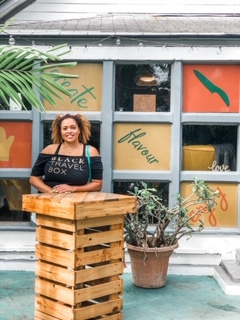Before becoming a full-time entrepreneur, she led brand strategy at Oracle. Where she facilitated Fortune 100 client engagements to deliver data-driven consumer insights.
She led brand marketing efforts for the Transformers and My Little Pony brands at Hasbro. And at Nestle, she worked on innovation for the iconic Nesquik brand.
Orion is a lover of travel and food, spending most of her free time outside of career pursuing the best of both.
What’s the #1 piece of advice you have for black women starting new businesses?
Use your gut and be relentless. There is something you uniquely bring to the world and to what you do. The only way to leverage that is to be true to yourself and learn to honor it.
What is your morning routine?
I’m more of a night owl. My morning routine is pretty much an anti-routine. I do try to spend time easing into the day – make the bed, have a glass of water, and get my bearings on what’s on deck for the day. I rarely do coffee and I usually don’t eat until around lunchtime.
Has your product/service gone through iterations and changes? What was your strategy for learning from customers and improving the product?
It’s still going through iterations! If I had the capital it would be going through them even more rapidly. Continuous improvement is the name of the game. I’ve done customer interviews, surveys, and a maxdiff study. Ideally, I would talk to customers every week but I just don’t have the bandwidth. But every time there is a question or something I have trouble deciding on, I get customer input from either my actual customer base or I go to my peers who fit the target. My biggest piece of advice here is never to ask hypothetical questions – always give them something to react to. Whether it be a prototype or a visual, you’ll always get a clearer understanding of how they would actually behave rather than how they think they would.
How did you acquire the necessary capital required to scale your business and get to this level?
I self-funded mostly from savings. Did small friends and family round via convertible note, and worked with organizations like Sistabiz for non-dilutive grants.
What area of your business did you have the least experience in when you started? How did you handle the learning curve and ensure the business succeeded in that area?
Everything lol. I’ve got nearly a decade of brand management experience but there is nothing more humbling than having to re-learn how to mail a package. Yes, logistics is no joke. Really all of the day to day tactical stuff was completely new to me. I used facebook groups, blogs, and lots of googling to build the knowledge set I have today. It was many sleepless nights, trial, and error.
What advice do you have for women trying to cross-cultural lines to grow their business? Can you speak to this from both a race and class perspective?
Honestly, anyone can sell anything to any and everybody. The key is to let go of YOU as the consumer and focus on learning who the consumer really is. Even if they are like you in many ways, there’s so much more to uncover because they represent potentially hundreds of thousands of customers – and you cannot possibly be identical to all of them. It’s the nuance of these consumers that creates connection. If you can connect, you can sell. Race and class be damned.
Tell us about your first big deal and how you achieved it? (This can be a retail distribution deal, large-scale contract, sponsorship or funding round)
I raised $30K in my friends, family, and fools around. Don’t even count family. They weren’t trying to even put five on it. But what I was I went to my network and tapped the people that really believed in me and the vision I had for the company. I had to kiss some frogs (beware of people who have no clue what they’re doing and want you to jump through hoops) and made the mistake of running after a few shiny leads that weren’t a good fit. But in the end, the ones that believe in me. In my integrity, drive, grit, smarts, and heart… they were one’s that invested without a blink.
If you can share one message to inspire black women in business, what would it be?
All the reasons we’ve been suppressed and underestimated are all the reasons we will win. We’re strong, resilient, and industrious. Don’t ever forget that.
How have relationships impacted your business? What advice would you give entrepreneurs about how to manage business relationships? What relationship skills are most important for business success?
Business relationships are between humans. Humans are fallible. Doesn’t matter if they’re executives or janitors. Respect is the core of any good relationship and should always be non-negotiable. Empathy allows you to understand motivations and treat people better than just a business opportunity. Healthy boundaries help to maintain expectations, consistency and protect you both from losing time and money.
Can you tell us about a great failure or disappointment that you learned or benefited greatly from in your business?
I hired very poorly my first year in business. I mean every other person was a joker in disguise.
What I realized were three things…
1) when building a team and hiring focused on culture do not miss truly vetting on talent. Just because you get along, and can afford them, doesn’t mean they are able to get the job done.
2) everyone needs a probationary period. Don’t be afraid to pay to test people out in the role for a short period. It’ll save you far more in the long run.
3) Everyone wants to be an expert, no one wants to be a professional. These days everyone wants to be an overnight expert.
Beware of this. Ask for case studies, proof points, and outcomes. Samples of their work and references. Do not go on their word alone. Oh, and a bonus learning… don’t pay an entire project fee upfront. Pay based on milestones – reviewing and approving along the way. It will ensure their motivation is high throughout the engagement and protects you from ghosting or poor work.

